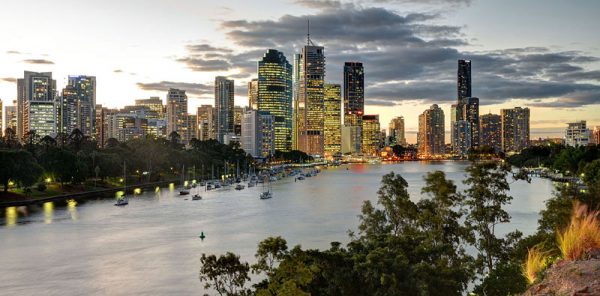Australian Olympic Committee (AOC) president John Coates reaffirmed Tuesday that a Brisbane-based bid to host the 2032 Olympic Games would remain cost-neutral and without major risks.

at the 135th IOC Session in Lausanne, Switzerland – January 10, 2020 (Photo: Christophe Moratal/IOC)
Coates, who is also Vice President of the International Olympic Committee (IOC), was forced to defend the bid’s budget on the heels of a scathing report from Oxford University’s Saïd Business School that claims the Olympics go over budget on average by 172 percent. He denied the accuracy of the report and maintained that the IOC contributes billions of dollars to the organization of the Games.
“The minimum figure we’ve been told the IOC will provide for a Brisbane Games – and this is the basis upon which the Queensland government did their value propositions – is [AUD] $2.5 billion,” Coates told Australian Financial Review following a torch lighting ceremony commemorating the 20th anniversary of the opening of the Sydney 2000 Olympics.
“That’s how on the budgeting of $4.5 billion, the early budgeting for Brisbane – before we bring in the simplification measures and other efficiencies that we’re dealing with – that’s what gets you to a break-even position,” he said.
We wrote #IOC, rebutting criticism of new Oxford study: https://t.co/foQZfQdOPO@AP now says IOC has "no further comment": https://t.co/xMBU23hL4M
Looks like we won't get reply
One has to wonder why?Free copy of new Olympics study: https://t.co/QKvKdyObgF
Pls shr@OxfordSBS pic.twitter.com/SEC3Z75HB8
— Prof Bent Flyvbjerg (@BentFlyvbjerg) September 15, 2020
Coates and other IOC members dismissed the report Why the Olympics Blow Up last week pointing to the authors’ mixing of capital infrastructure costs with actual organizing costs – and ignoring the value of the legacy. But the report writers shot back in an open letter this week, indicating that their accounting was sound and underlining that the IOC burdens the host city with all financial risks.
“For clarification, we do the exact opposite of what the IOC claims we do: our numbers include only the direct sports-related costs of the Games,” Professor Bent Flyvbjerg of Saïd Business School wrote.
“The wider infrastructure budgets of the city, region and country – which, as you know, are often several times higher than the sports-related costs – are left entirely out of our numbers.”
Flyvbjerg then challenged the IOC to back up their claims.
Similar reports of blown Olympic budgets have emerged in the past and in some cases have resulted in the cancellation of promising bids. In 2016 the mayor of Rome shelved the Capital’s bid to host in 2024, citing a similar study as the basis of her decision.

Now, with the Tokyo 2020 Games delayed by a year amid the COVID-19 health crisis, and the likelihood that organizing costs will continue to grow – the need for the IOC to shoulder some of the financial burden is being highlighted.
Brisbane’s bid was the first to officially launch in January, positioning Australia’s entry as the front runner. In May, Queensland’s Premier put the bid on hold to instead focus on the emerging pandemic.
Also organizing or considering bids are India, Indonesia, Germany, Spain, Qatar, Turkey and North and South Korea. The IOC has not set a timeline for the election of the 2032 host but it is not likely that a winner will be named before 2022.


